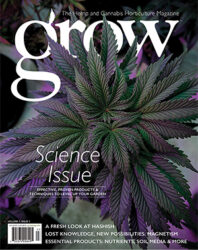The decline in bee populations first became widely noticed in 2006, when commercial beekeepers in the United States reported honey bee colony loss rates averaging 30% each winter, which is double historical loss rates of 10 to 15%. Beekeepers reported loss rates of 40% last year. Bees are responsible for pollinating about one-third of the world’s food supply, with more than 1,000 plants requiring pollination. Chocolate, coffee, peaches, almonds, tomatoes, blueberries, strawberries, apples, pumpkins, melons, and vanilla are just some of the fruits, nuts, and vegetables that bees pollinate. Now, researchers from Colorado State University’s Department of Soil and Crop Sciences found that hemp could not only help prevent the die-off of bees, but can also help protect bee diversity. Hemp doesn’t produce nectar, but grows easily without pesticides, which is one of the important factors working against bees, and produces a lot of pollen. According to the study, 23 different genera of bees were found on wind-pollinated hemp plants, making it an important food plant. And, with most hemp flowering later in the growing season, it could help make up for shortages in pollen-producing plants between July and September. By planting hemp, farmers could help bees and encourage pollination of their crops.

